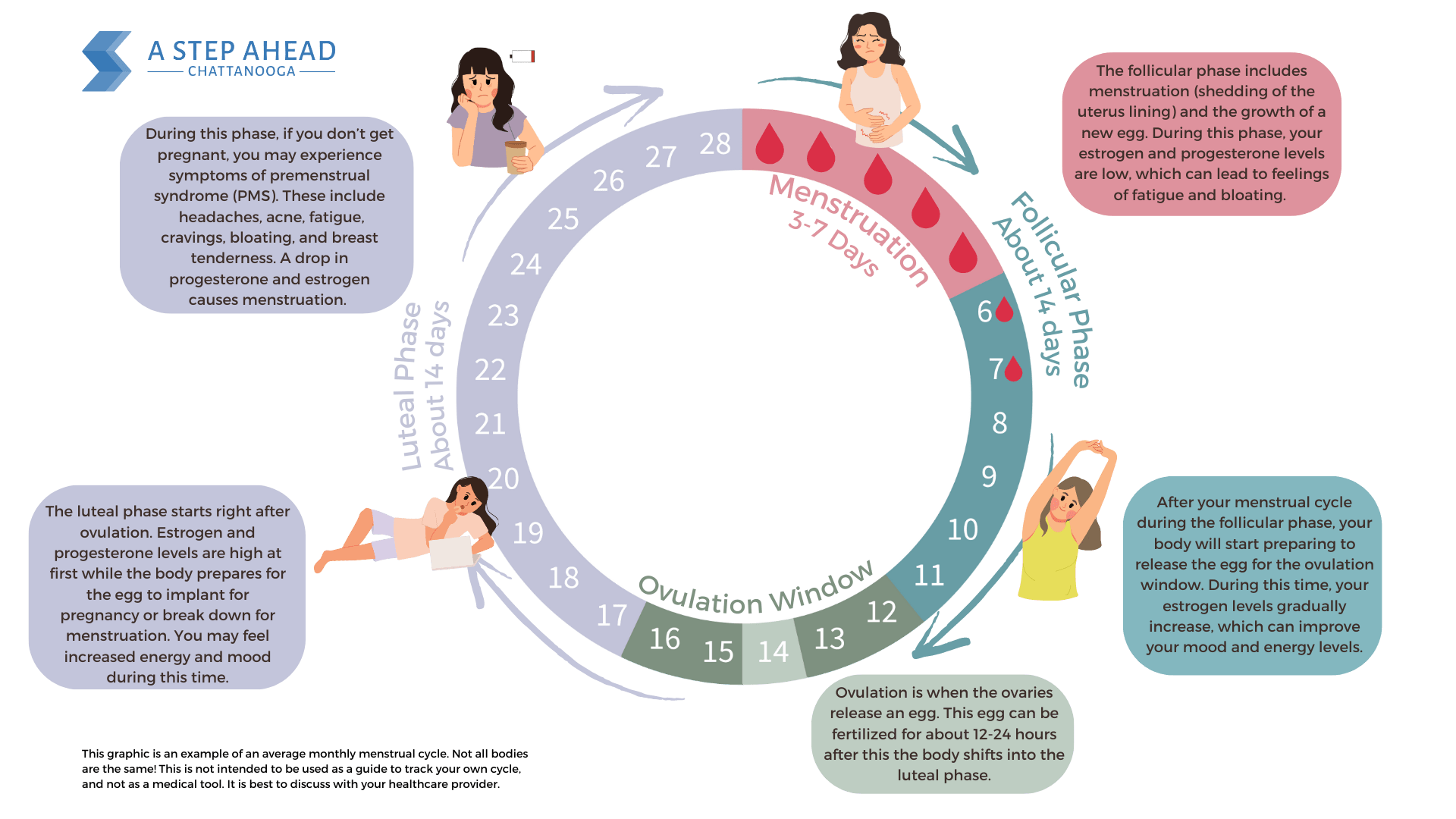Finding Power in the Pause

If you search them on the internet, you will likely see images of gray-haired, older women with a hand on their forehead as if to say, “Oh no, not another hot flash!?” These images lead many to have a negative association with this time of life. Our culture often portrays aging as something to be feared or fixed. But this time can be a powerful transition if you know what to expect and how to support yourself best. Many women even report feeling more confident and fulfilled because of this transition!
First, let’s define the “pauses.” Perimenopause can start as early as the mid to late 30s or as late as the mid-50s, a transitional time when the body gradually produces less estrogen. When someone has gone an entire year without menstruating, they have officially reached menopause. Once this happens, you can no longer get pregnant.
While menopause is a one-time occurrence, perimenopause can last from four to eight years, according to the North American Menopause Society. Think of this time as reverse puberty. The body is preparing to transition into a new stage of life, and it no longer needs the hormones to prepare for a potential baby. You can, however, have an unplanned pregnancy during this time, so plan accordingly! Like puberty, this time can be unpredictable, so curiosity and self-compassion are essential.
Irregular periods
Sleep disturbances
Brain fog
Shorter menstrual cycles (less than 25 days)
Hot flashes and night sweats
Intensified emotions
Acne
Vaginal dryness
Heavier bleeding
Sore, tender, or lumpy breasts
Lack of confidence
Anxiety
Whew! That can be a lot, especially when you aren’t expecting these unwanted symptoms. While some people may experience one or two, others may feel overwhelmed with several. Not knowing what is going on with your body can exacerbate these symptoms. Some feel shame, guilt, or resentment during this time because they feel their bodies are working against them.
Rest assured, there are ways to mitigate these symptoms and find fulfillment in life and Power in the Pause! Instead of thinking you must add more to your to-do list, consider these ideas as small choices that will make a big difference during this transition.
Take life down a notch. What can you slow or minimize in your life right now? Work, social activities, exercise, and caring for others can sometimes be too much. Helping others is wonderful, but only when the helper is well-rested, nourished, and has the energy to give.
Perimenopause is when the body needs more rest to operate at its fullest. Exercising too much will spike the stress response making it hard for the body to rest and digest. When the body is in this state, it is hard to sleep, you may have more anxious thoughts and feelings, and it will hold onto weight, especially around the midsection.
Ask yourself these questions:
Sometimes we are so used to being on the go that we forget to listen to our bodies. When you are tired, sleep. If you are hungry, eat. If you aren’t hungry, don’t eat. Using your curiosity to get to know your body as it moves through this transition can be powerful. When you slow down, you may notice the ability to trust your intuition more.
If you still have a menstrual cycle, it helps to know what phase you are in to make choices that can alleviate symptoms and restore balance in your hormones. Menstrual Cycle Awareness (MCA) is where you note what phase of the menstrual cycle you are in. It’s a self-lead practice where you are aware of your thoughts, emotions, and behaviors and take note of what day of your cycle you are on. For example, when you know you are in the week before you menstruate, you can say no to social invitations or take an extra nap. Or if you are ovulating, you can make the most of that extroverted energy by attending social activities or going on a long hike.
MCA helps to see a trend in your transition and to be able to plan for birth control as well. Although fertility can be more challenging during perimenopause, an unplanned pregnancy is still possible. Ovulation is usually around 11 to 14 days after the first day of menstruation or bleeding, but if your periods are irregular, it can be hard to tell. During this time, testosterone spikes, so the libido is higher, which means the chances that you may get pregnant are also higher, even if you are in perimenopause. Talk with your medical provider about birth control options. Some forms of birth control may even help alleviate symptoms associated with perimenopause! If you need a refresher on the available birth control methods, review this previous blog with a breakdown of different options.

If you have entered the perimenopause phase or if you think you might be and you are interested in free birth control, call us at 423-265-7837 to schedule an appointment or email us at healtheducators@astepaheadchattanooga.org with questions.
Gynecologists and Health Coaches are trained to support people specifically during this time of life. Check out the North American Menopause Society to find a healthcare provider in your area.
© A Step Ahead Chattanooga 2024 and website designed by Brightside Creates.
We collect cookies to analyze our website traffic and performance; we never share any personal data. View our Privacy Policy.